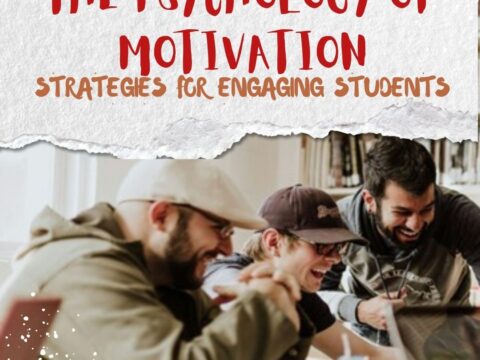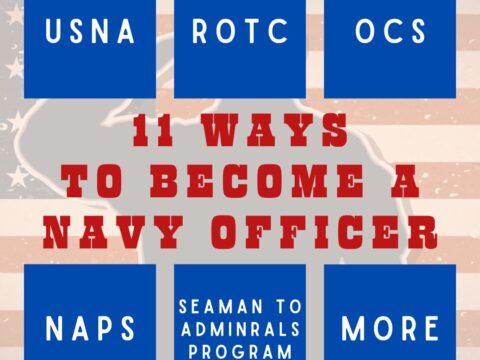College enrollment among high school grads grew during the early 2010’s, leveling off about 2017 when it began to drop to a current low of about 62%, approx. 4% lower than 2019. The decline may be due to increased costs, that the cost-benefit of a college degree and earnings after graduation is questionable (according to some studies), the pandemic, or a plethora of other reasons. The current trend among some colleges of not requiring ACT or SAT scores hasn’t stopped the fall.
One of the Ask a Tech Teacher contributors has come up with a good article on how to make career information more easily available to high school graduates, with a focus on those who may not want to continue to a college or University. This article reviews the many benefits of providing career education for high school students and which areas are particularly valuable. It looks at how to best include this learning into an existing curriculum.
How High School teachers can incorporate careers education into the curriculum
Including career education in the curriculum is important for a number of reasons. It will help students to better understand what they want to do when they grow up, and it will also give them a better idea of the different options that are available to them. Teaching high school students about careers also helps them to develop skills that will be useful in their future jobs, such as problem-solving and teamwork. In addition, it can also help to inspire them to pursue their dreams and goals.
Helping students understand their own strengths and weaknesses, and how these match up with different careers
It’s never too early to start thinking about career options. But for many students, the thought of choosing a single path can be daunting. One way to ease the pressure is to help students understand their own strengths and weaknesses, and how these match up with different careers. You can include this in the curriculum by helping students assess their skills and interests, students can then begin to narrow down their options and find a career that is a good fit. In addition, understanding their strengths and weaknesses can help students identify areas that need improvement. With this knowledge in hand, they can then take steps to address any deficiencies and become better prepared for their chosen career. Ultimately, by helping students understand themselves, we can give them the tools they need to make informed decisions about their future.
Giving students an overview of the range of career options available to them
When it comes to choosing a career, there are endless possibilities. With so many options available, it can be difficult to know where to start. However, it is important to remember that there is no one-size-fits-all answer. The best way to choose a career is to explore all of the options and find the one that best suits your interests and skills.
One of the best ways to learn about different careers is to talk to people who are already working in those fields. For instance, many high schools ask professionals to come in to school and give talks about what they do in their job. Students can ask what they like and don’t like about their job. Also, ask about the education and training that they needed to get their job. This can give you a better idea of whether or not a particular career is the right fit for them.
There are also many resources available online that can help you learn about different careers. Websites like CareerBuilder and Indeed offer information on a variety of topics related to careers, including job descriptions, salary data, and company reviews. In addition, many colleges and universities offer career counselling services to help students explore their options and internships to help make an informed decision about their future. By using these resources in your curriculum, you can help students make the right choice for their career.
Helping students understand the skills and qualifications needed for different careers
For many students, the future can feel like a far-off and daunting prospect. One way to help them begin to plan for their future is by teaching them about the skills and qualifications needed for different careers. For example, students might be surprised to learn that many jobs in the medical field require not only a college degree but also several years of specialized training. By contrast, careers in the culinary arts often involve on-the-job learning and apprenticeships. Helping students understand the path to different careers can give them a sense of direction and purpose as they begin to plan for their future.
In Summary
As shown in the above examples, careers education can be extremely beneficial for students. By including a number of learning exercises in the curriculum to help students understand their own strengths and weaknesses and about the skills and qualifications needed for different careers, we can give them the tools they need to make informed decisions about their future.
Copyright ©2022 askatechteacher.com – All rights reserved.
Jacqui Murray has been teaching K-18 technology for 30 years. She is the editor/author of over a hundred tech ed resources including a K-12 technology curriculum, K-8 keyboard curriculum, K-8 Digital Citizenship curriculum. She is an adjunct professor in tech ed, Master Teacher, webmaster for four blogs, an Amazon Vine Voice, CSTA presentation reviewer, freelance journalist on tech ed topics, and author of the tech thrillers, To Hunt a Sub and Twenty-four Days. You can find her resources at Structured Learning.





































It seems a college degree holds less importance now. It seems possessing a skill or special ability is more important than ever. Going to college shouldn’t be such a financial burden for young people and their families. Will the same thing eventually happen in public schools?
I wonder that, too, about public schools. My kids had a great experience there, but not sure it would be true anymore.